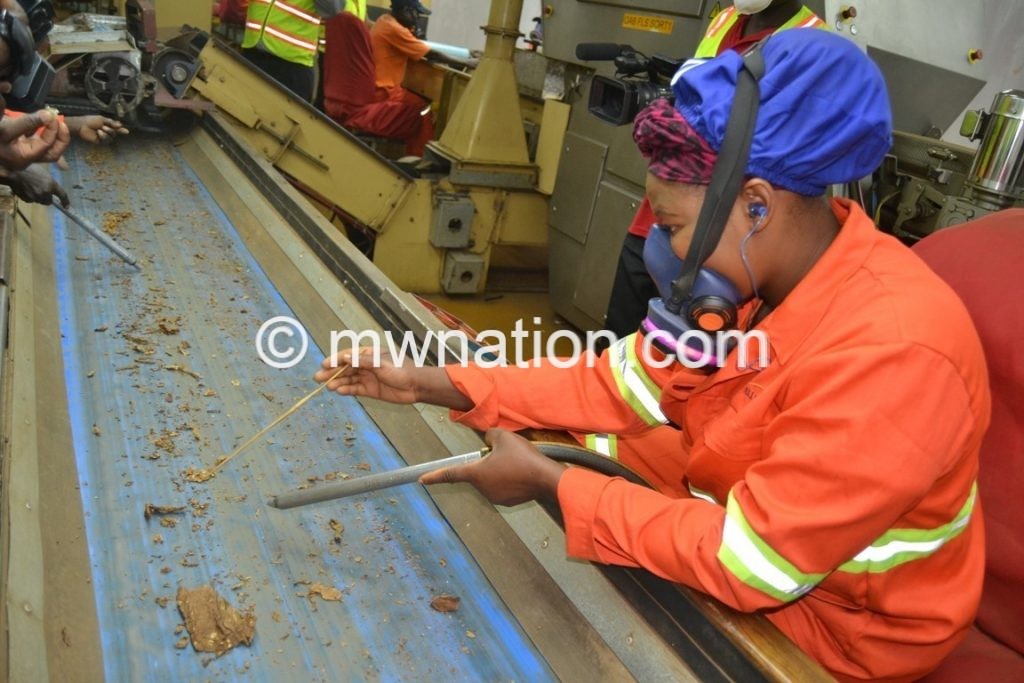Exporters decry environment
Exporters on Tuesday asked government to address a hostile policy environment and poor infrastructure which they said contribute to their poor performance in the export market.
The exporters also attributed the poor showing to continued poor product accreditation and expensive financing.
They expressed their sentiments in Lilongwe during an Annual Export Seminar organised by the Malawi Investment and Trade Centre (Mitc) to discuss challenges affecting the export sector and map the way forward to reverse the status quo.
In her contribution, Mzimba-based licensed gemstone exporter, Margaret Nkhoma, said lack of equipment, capital, certification and accreditation of the gemstone products remain a burden. She said they end up exporting raw products instead of value-added ones.

Nkhoma also lamented exorbitant export fees for export licences and taxes charged on products as some impediments to penetrate the export market.
On his part, Naming’omba Estate general manager Amos Suluma, whose company produces and exports macadamia nuts, said despite the business being being lucrative, their final products are facing certification and accreditation challenges, which he said are rigorous and expensive.
He said the situation is due to the absence of certified laboratories in the country.
Suluma said there is a ready market for local macadamia nuts, but complained that the company is falling short of volumes due to unsupportive environment.
He said: “We face numerous challenges in terms of certification and accreditation. For instance, we did ours in South Africa with Food Safety Systems Certification under the Rainforest Alliance which increased buyer confidence.
“So, certification is really expensive and laborious. We also do not have packaging materials such as foil pouches which we mostly import as they are not available in Malawi.
“There is lack of deliberate government policy to support macadamia nuts production as well as the financing challenges as most of the banks do not take the risk to finance long-term investment.Macadamia nuts take about seven years to produce yields for exports.”
Malawi Confederation of Chambers of Commerce and Industry (MCCCI) chief executive officer Chancellor Kaferapanjira said exports have deteriorated over the years because government has failed to provide the necessary investment climate.
“What we have gotten wrong as a country is to depend on the market to work on its own. You may recall that the few industries and crops that we have grown as export crops were actually developed with government support.
“Coffee and tea was even promoted by government in early stages, but now if you want to promote and diversify the exports, government should provide technical and financial assistance and equipment to guide specific areas of exports such as agriculture and manufacturing,” he said.
Kaferapanjira cited industrial cites in Lilongwe and Blantyre which weredeveloped by government and it initiated investments to spearhead industrialisation.
He said the National Export Strategy (NES) implementation failed because government left it to the private sector.
Launched in 2013, the NES envisioned to double exports between 2013 and 2018, an aspiration which was not realised as imports value still outpace exports value by a wide margin.
The trade gap is estimated to be over $1 billion (about K740 billion), reflecting a sluggish export growth as well as the country’s struggle to attain import substitution.
Kaferapanjira said countries such as Ethiopia and China are developing because government is spearheading industrialisation and export initiatives that have even created trade wars with developed countries.
He said: “Government assistance in the initial stages of industrialisation is critical. The export experience we have now is worse than in 2012 because our exports in 2012 were higher than last year.
“This means as a country we are not making progress. If government is not getting involved then I can tell you that we don’t have a future.”
Mitc chief executive officer Clement Kumbemba admitted that accreditation has remained an issue for exporters that is why the Malawi Bureau of Standards (MBS) was internationally certified recently.
“Most of our products are failing on the global market because of the lack of desired accreditation issues. Some of the exporters who are successful are doing accreditation of their products abroad like in South Africa which is costly.
Kumbemba expressed hope that government’s recently imported machinery for a number of manufacturing ventures such as cooking oil and shoe-making, among others, will improve export performance.
Ministry of Industry, Trade and Tourism Principal Secretary Ken Ndala admitted that Malawi is still having trade balances which gives room for improvement.
He said: “The impediments basically are to do with quality of the products that we are producing. We are not value-adding our products when exporting, we still export raw materials.” In 2013, before the NES was launched, Malawi exports totalled K1.47 billion, and in 2018, it was around K1.1 billion which is less than what was exported in 2013.





